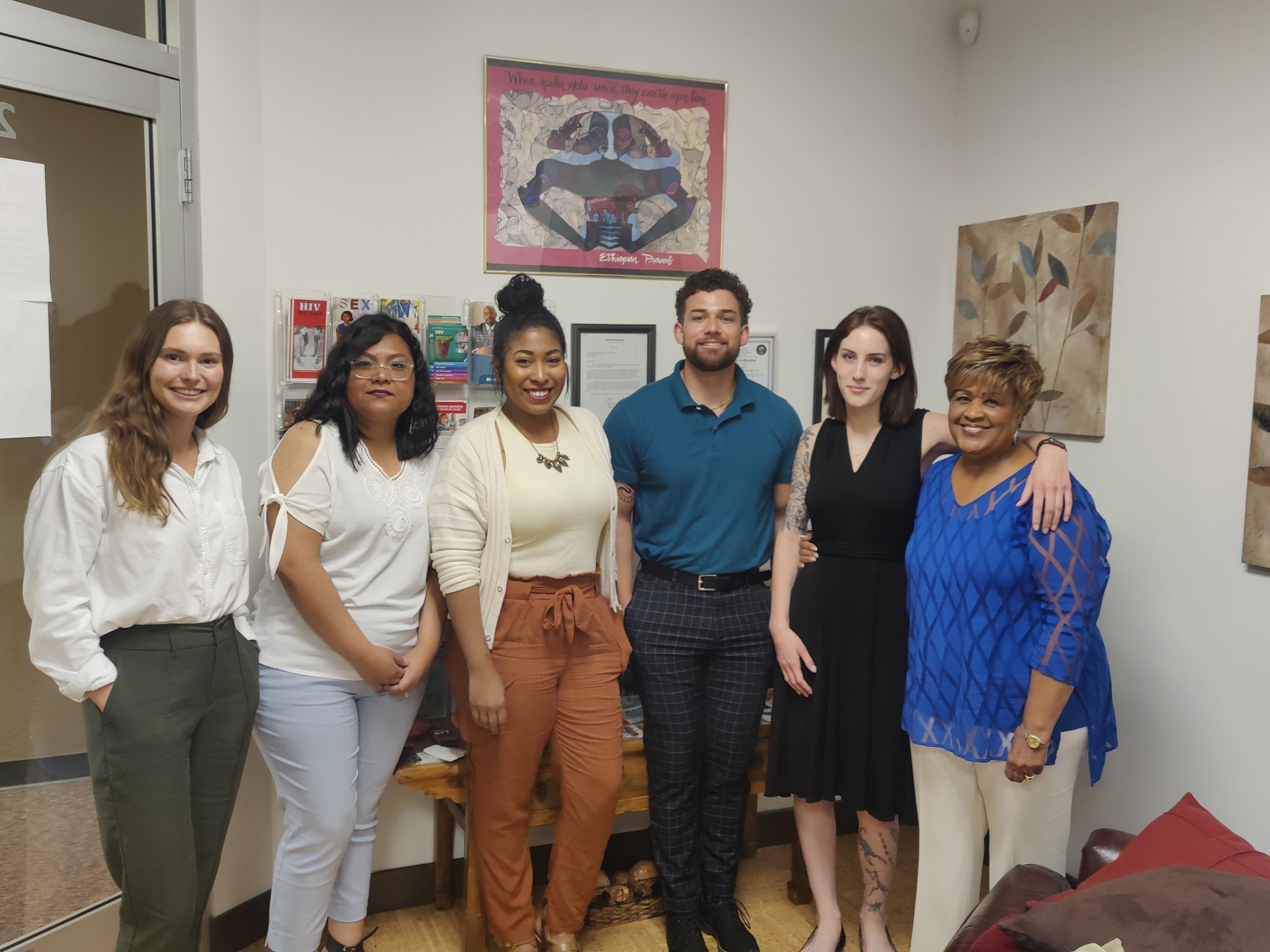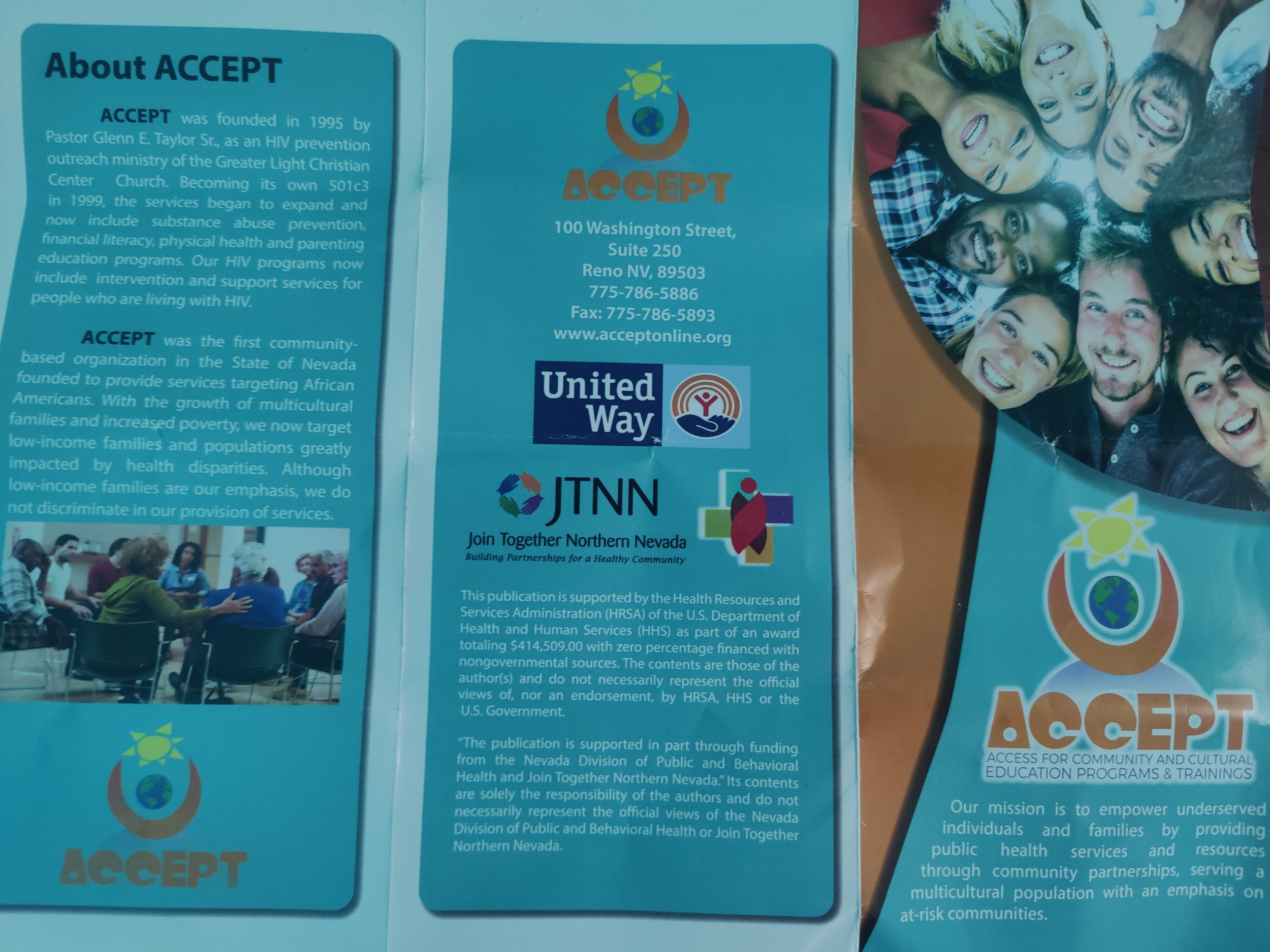The Access for Community and Cultural Education Programs & Trainings (ACCEPT) is a non-profit organization in Northern Nevada providing health education and services for clients with HIV.
Founded after the tragic death of two men due to AIDS, the group has been serving the Northern Nevada area for nearly thirty years.
“In the early nineties, there were two young men that died from HIV and AIDS that were going to our church,” Executive Director of ACCEPT Gwen Taylor explained. “No one wanted to tell my husband that they died. Those two guys died. Young men died of AIDS without their pastor going to visit them. My husband just became very aggravated with the ignorance.”
After the men passed away, Taylor and her husband started visiting barber shops, beauty shops and churches to provide health education on HIV. Four years later, in 1999, the group officially formed a non-profit, creating the organization that still exists to this day.
After a few years as the African American Cultural Education Programs & Trainings, the nonprofit’s name was changed slightly to become Access for Community and Cultural Education Programs & Trainings. The name was altered to reflect that the group’s services are available to anyone who falls underneath a certain maximum income, that income being about four hundred percent of the federal poverty level, or about $50,000 for a single person.
“We started with the African American community because we were the most severely infected and we still are the most severely infected,” Taylor said. “We do target African Americans. We target minorities, we target low-income people, but as long as they meet those poverty guidelines, we will help any race.”
ACCEPT provides its clients with health education and acts as a provider of non-medical case management. This means that the help ACCEPT provides their clients has to fall outside of medical care, but has a wide variety, from providing housing referrals to transportation credits, or helping older clients navigate technology.
Another key distinction of non-medical case management for ACCEPT is that appointments aren’t limited to a certain time. For agencies or hospitals which are supplying medical care, this isn’t always the case. The willingness to provide clients with customized care, and to spend time with them based on their needs means clients form a close relationship with the agency. Taylor said she feels like a mother to some of her clients.
“They feel like they are a human being,” Taylor said. “They don't feel like they're just being shipped in and shipped out. They feel like we care. And, sometimes, we're the only family those clients have.”
Throughout the decades, stigma against people diagnosed with HIV and misconceptions surrounding the disease has persisted. Many of ACCEPT’s clients don’t want their families to know they have been diagnosed with the disease.
When a client puts down an emergency number, ACCEPT asks if the contact is aware of the client’s HIV status. There are no signs outside the building ACCEPT is housed in, and there is little indication whatsoever that there is an agency inside focusing on providing services for people diagnosed with HIV until you’ve already walked into the office and encountered the many brochures in English and Spanish lining the walls.
“We have a lot of work to do within our community, especially with the churches and especially with family members,” Taylor said.

